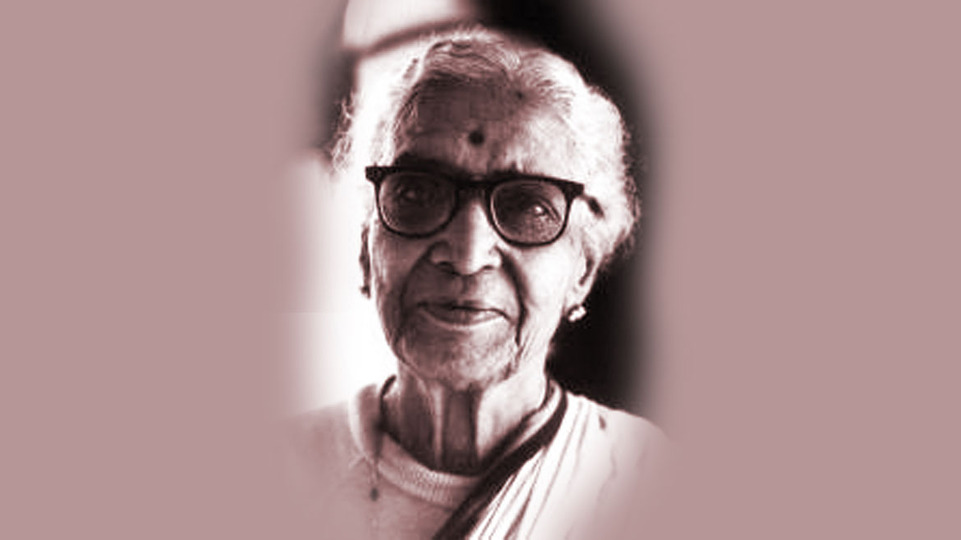Malati Bedekar, The First Feminist Author of Modern Marathi Literature
on Oct 14, 2022

Feminist writing has always been contentious and of waning importance. However, works like Virlele Swapna (The Dream That Has Faded), by Vibhavari Shirurkar, offer a crucially South Asian, women-centric viewpoint to writing that has generally been dominated by men.
Vibhavari Shirurkar, who was she? It was the pen name of Malati Bedekar. Male authors and critics were baffled by the rich personalities, nuanced emotions, and sincere wants of her female characters. The entire notion that there might be a novel with a female protagonist who wasn't solely submissive surged into the literary scene, receiving both praise and declarations of utter contempt.
Malatibai Bedekar was born to a forward-thinking art teacher. She was the daughter of a father who firmly believed in the need for education for all of his children and a dedicated homemaker mother who also oversaw the family's dairy farm. Bedekar was born and raised in a modest rural area of Maharashtra; her maiden name was Balutai Khare.
The foundation for the body of work she would produce throughout her life was laid by her admission into Maharshi Dhondo Keshav Karve's school for girls and her subsequent graduation from Bombay's SNDT University (founded by the women's rights pioneer Karve himself and India's first university for women).
Young Balutai Khare's initial interest in feminist beliefs was sparked by these overtly feminist influences while she continued her studies in linguistics and education. In addition to her writing profession, Malati Bhedekar became active in socialist politics and local, grassroots volunteer work. She also served as a teacher at the SNDT University and a government administrator of a "settlement" for a few tribes that the British government in control of India at the time had labeled as "criminal" tribes.
Malati Bedekar was motivated to write works like Kalyanche Nishwas (1933), a collection of short stories that only dealt with the lives of regular women, by her upbringing in feminist environments. These tales included a compilation of the events she had learned about while studying at her school's dormitory among widows. Her general work focused deeply on the female experience and highlighted the issues that women confront, particularly those who are bound by marriage laws.
Malati Bedekar discovered insights into the lives of women from various socioeconomic backgrounds while serving as the head of her school. Before the term "intersectionality" was even used, she had a profound understanding of its significance in society.
Due to this, she also wrote the novels Hindolyavar (1934), which focused on the despair of a middle-class lady trapped in an unresolvable marriage, and Virlele Swapna (1935), which examined the generational effects of Marxist ideology. Additionally, Malati Bedekar was inspired to create Bali, one of the first works of Marathi literature to portray Dalit & tribal populations, although by an ally, as a result of her job experience with the colonial authority.
Given her social status as the second person in her family to ever graduate, her writings also explored the existence of educated women inside the family.
Malati Bedekar did some playwriting and Marathi to English translation because she was not one to limit herself. A notable non-fiction book by her is a biography of her father, Kharemaster (1993), which offers both an engaging female viewpoint on paternal feminism and a moving depiction of the trials and achievements of progressive men in her historical period. This work is also her last.
These broke the literary glass barrier in 20th-century Marathi discourse, which tended to emphasize the plight of dominant-caste men more than the uniqueness of femininity and the significance of intersectional social transformation.
Malati Bedekar sought to include novel representations in her work, which includes sapphic relationships, hetero-platonic relationships, and genuinely humane perspectives of tribes that had been legally criminalized under the British Raj. She had previously introduced conservative Marathi societies to the world through the female gaze. Naturally, no socially critical writer can make judgments about their culture.
Ironically, liberal social reformers who complained that Malati Bedekar's art did not reflect the "progress" they had accomplished as well as traditional, conservative groups criticized her work harshly. Some people were offended by how women were portrayed generally, while others were offended by how her works illustrated the persistence of women's difficulties.
Fortunately, Malati Bedekar's pen name shielded her from damage and uncertainty because her writing soon drew hate and threats of murder. We now have access to a wealth of feminism-focused viewpoints on the life of a Marathi woman in the 1900s because of her persistence in writing against discriminatory ignorance. However, it is difficult to ignore the fact that her renown has diminished since the turn of the century.
Understanding the sociolinguistic relevance of womanhood from feminist literature initially produced in vernacular languages is essential. We must turn to history and translated works as literary critics, readers, and media consumers to lead us through future feminist movements to move away from exclusively Eurocentric and/or English ideas.
What about Vibhavari Shirurkar? Born Balutai Khare, her name was Malati Bedekar. She was a Marathi writer, teacher, and PhD-holder in Sanskrit who also dabbled in politics and social work at a period when daring intersectional feminist groups were only beginning to gain traction.



.jpg)






.jpg)

.jpg)
.jpg)
.jpg)
.jpg)
.jpg)
.jpg)










Sorry! No comment found for this post.